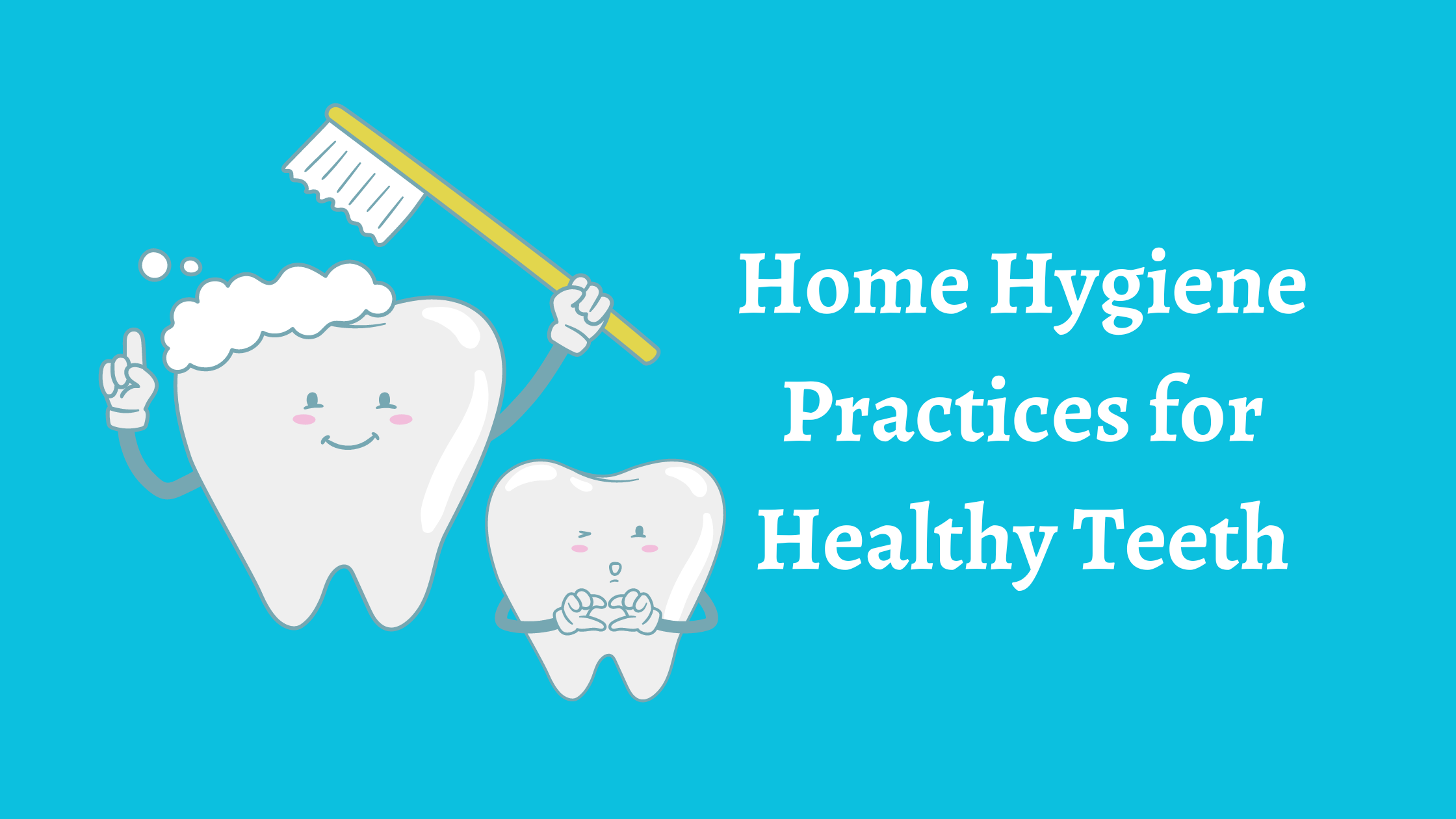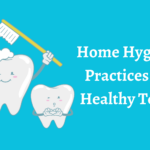
Maintaining good oral hygiene is crucial for overall dental health. While regular visits to the dentist are important, the foundation for healthy teeth starts at home. By adopting a consistent oral hygiene routine, you can prevent dental problems such as cavities, gum disease, and bad breath. In this article, we will discuss the ten best home hygiene practices that will help you achieve and maintain a healthy smile.
1: Brushing Technique and Frequency:
One of the fundamental aspects of dental care is proper brushing technique. It is recommended to brush your teeth at least twice a day, using a soft-bristled toothbrush. Ensure that you brush for a minimum of two minutes, covering all surfaces of your teeth, including the gumline. Using short, gentle strokes, angle the bristles towards the gumline to remove plaque effectively. Remember to replace your toothbrush every three to four months or sooner if the bristles become frayed.
2: Flossing:
Flossing is an essential part of oral hygiene that often gets overlooked. It helps remove plaque and food particles from between your teeth and along the gumline, where a toothbrush cannot reach. Use about 18 inches of dental floss, wrapping most of it around your middle fingers and leaving an inch or two for flossing. Gently slide the floss between your teeth, following the curve of each tooth, and make sure to reach below the gumline. Use a fresh section of floss for each tooth to prevent spreading bacteria.
3: Mouthwash:
Adding mouthwash to your oral hygiene routine can provide additional benefits. An antimicrobial mouthwash can help kill bacteria and freshen your breath. Rinse with mouthwash for about 30 seconds after brushing and flossing. Be sure to choose a mouthwash that is alcohol-free, as alcohol can dry out your mouth and potentially cause oral health issues.
4: Tongue Cleaning:
Cleaning your tongue is often overlooked, but it plays a vital role in maintaining oral hygiene. Use a tongue scraper or your toothbrush to gently clean your tongue from back to front. This will help remove bacteria and debris that can cause bad breath.
5: Healthy Diet:
A nutritious diet is not only essential for your overall health but also for your dental health. Limit your intake of sugary and acidic foods and beverages, as they can contribute to tooth decay. Instead, opt for a balanced diet rich in fruits, vegetables, whole grains, lean proteins, and dairy products. These foods provide essential nutrients that promote strong teeth and gums.
6: Limit Snacking:
Frequent snacking throughout the day can increase the risk of tooth decay. When you snack, your mouth produces more acid, which can erode tooth enamel. Limit your snacking and opt for healthier choices like fresh fruits, vegetables, or nuts instead of sugary snacks or sodas. If you do indulge in sugary treats, it is best to consume them during mealtime to minimize the impact on your teeth.
7: Stay Hydrated:
Drinking plenty of water throughout the day helps maintain good oral health. Water rinses away food particles and stimulates saliva production, which helps neutralize acids and protect your teeth. Opt for fluoridated water, as fluoride strengthens tooth enamel and reduces the risk of cavities.
8: Avoid Tobacco and Alcohol:
Tobacco and alcohol have detrimental effects on your dental health. Smoking and chewing tobacco can cause oral cancer, gum disease, tooth discoloration, and bad breath. Alcohol, especially when consumed in excess, can dry out the mouth, leading to an increased risk of tooth decay and gum disease. It’s best to avoid tobacco products altogether and limit alcohol consumption to maintain optimal dental health.
9: Use a Mouthguard:
If you participate in sports or engage in activities that may pose a risk of dental injuries, it is essential to protect your teeth with a mouthguard. Mouthguards act as a cushion and help absorb the impact of a blow to the face, reducing the risk of broken teeth, jaw fractures, and soft tissue injuries. You can choose between over-the-counter mouthguards or custom-made ones that provide a better fit and protection.
10: Regular Dental Check-ups:
While home hygiene practices are vital, regular dental check-ups are equally important. Visit your dentist every six months for professional cleanings and thorough oral examinations. Dental professionals can detect early signs of dental issues, such as cavities, gum disease, and oral cancer. They can also provide personalized advice on improving your oral hygiene routine and address any concerns you may have.
Wrapping Up
Maintaining good oral hygiene at home is crucial for achieving and maintaining healthy teeth and gums. By following these ten best home hygiene practices, including proper brushing technique, regular flossing, using mouthwash, cleaning your tongue, maintaining a healthy diet, limiting snacking, staying hydrated, avoiding tobacco and alcohol, using a mouthguard when necessary, and scheduling regular dental check-ups, you can significantly reduce the risk of dental problems and maintain a beautiful, healthy smile.
Remember, prevention is key, and adopting these practices as part of your daily routine will go a long way in ensuring optimal dental health. So, prioritize your oral hygiene and make it a habit to care for your teeth and gums every day for a lifetime of healthy smiles.
Thanks for reading!






